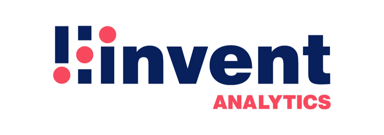
Maximizing New Employee Productivity Through Effective Onboarding
Onboarding is the process that integrates a new person into the organization, making him feel welcomed, empowered, and energized about new responsibilities. 🤝
It ranges from initial paperwork to training, cultural assimilation, and continuous feedback. Invest in a robust onboarding program, and it will pay off in boosting morale, encouraging employee engagement, and consequently delivering improved business results. 🚀
This article will explore how much an onboarding procedure can have impact on the productivity of new hires. 📈
The Importance of Onboarding in Employee Retention
Onboarding is what will ensure productivity and retain freshly hired workers.
The first few weeks of employment can set the stage for an employee's experience with an organization.
When executed correctly, an onboarding process can curb attrition and increase employee satisfaction.
Businesses that adopted structured onboarding programs experienced an average increase of 50% in the productivity of new hires and 69% in their retention.
These figures reflect how critical onboarding is to ensure the proper cultural fit of new hires at work and, simultaneously, make them ready to contribute right from the word 'go.'
Onboarding is a Human Resources policy that companies observe in initiating a new person to their fold.
This means formally training them and giving them information on details regarding the firm's culture, the expectations, and the specific functions of the team.
A successful onboarding process will explain clearly to the new blood their job duties and corporate guidelines and get them familiar with the organizational structure.
Key Components of a Successful Onboarding Program
Crucial elements for a successful onboarding program ensure that new recruits are ready for success.
These include pre-employment exercises, orientation, training, mentoring, and continuous feedback.
Pre-Boarding Activities
The onboarding procedure of the employee should start much before their first day at work. Some pre-employment tasks include a welcome email, sending certain documents, and access to online resources. This will lessen the administrative burden on the first working day for a brand new employee and make them feel valued.
Orientation
The first real exposure or formal introduction to the business for a new hire is usually through an orientation program.
Typically, this includes company history, mission, values, and culture overview.
While the new employee gets acquainted with the team, Company policies of the company are taught, often as part of this program, with benefits sometimes added in.
Training
Another essential part of onboarding is training. It equips laborers with the capability and learning to perform responsibilities according to their needs.
Training may be in the form of interactive exercises online courses teacher-led seminars, etc.
At the same time, it is imperative that training should be designed as per the role and tasks of the new employee.
Mentorship
Providing mentors for new hires can really make a big difference in terms of onboarding.
The mentors can help them understand the work culture and provide them with valuable advice and answers to their questions.
This builds an atmosphere of support and belonging that is important for employee retention.
Continuous Feedback
Feedback should be given to the new hire regularly during the onboarding process.
This helps understand the performance and development areas of new hires.
Moreover, constructive criticism ensures that any mistakes made are solved there and then to prevent concerns from escalating.
Onboarding Meeting
The managers can also clearly spell out their expectations in the hiring meeting from the new hire; this can be an essential onboarding step.
This may be an excellent opportunity to reduce fears and eliminate doubts, letting the candidate feel more knowledgeable and confident.
Customizing Onboarding Processes for Different Roles 🛠️
Each role should have different onboarding procedures. Other strategies for onboarding might be required for various roles in an organization. Customizing the onboarding process will make sure that every new employee gets the right kind of information and instruction to enable themselves for their roles.
Role-Specific Training
For a more technical job, the onboarding approach would cater more toward technical product knowledge and training.
For sales positions, it would also contain training about customer service and sales tactics.
These doubtlessly make the onboarding program position-specific, ensuring the new hires receive only relevant and valuable information to ensure their success.
Departmental Onboarding
These may have individual cultures or procedures. Incorporating onboarding activities specific to their department helps in the smooth induction of employees into their team. Meeting team members, familiarization with departmental guidelines, and learning about the particular equipment and systems that the department uses are a few examples of this.
Using Technology to Streamline Onboarding 🌍

Technology is an essential part of today's recruitment process. Many available platforms and solutions can assist with collaboration, facilitate training, and expedite administrative procedures.
Onboarding App
An onboarding app provides fast access to programs, resources, and critical information for new hires. Also, through such apps, the ability to connect with coworkers, mentors, or bosses can be availed.
Tracking progress, checking lists, and interactive training sessions are just a few inclusions that can improve the onboarding process.
HR Software
The HR software can automate a lot of the processes, such as paperwork and sending offer letters, in the entire recruitment process. It saves time and, at the same time, reduces the chances of error.
Moreover, HR software will assist in making sufficient, informed improvements by the business because it provides all the needed analyses and insights into how the recruitment procedure is effective.
Virtual Onboarding
Virtual onboarding has become prominent in the work-from-home setting. Some of the virtual recruitment solutions include digital document management, online training courses, and video conferencing. These tools make sure that remote workers are getting equal help and levels of engagement like their peers working from the office.
In Summary 📊
Effective onboarding processes help an organization reduce the labor turnover rate, significantly increase the productivity of new hires, and build a happy workplace.
The smooth onboarding experience can be further streamlined by tailoring it to specific positions and using technology to have the new hires feel well-supported, ready, and able to make significant contributions to their new teams.
Want a clearer view of your recruitment performance? Hirex's analytics give you straightforward reporting on key hiring metrics, including time-to-hire.
Start Hiring With Our Free ATS!
HR teams from AXA, Mondelez, Mercedes… they love us! (no credit card required 🙂↔️)
Get a demo
- Quickly find top candidates with smart application management
- Improve team collaboration using built-in communication and workflows
- Offer a smooth candidate experience to strengthen your employer brand
- Count on 24/7 support for a hassle-free hiring process
- Quickly find top candidates with smart application management
- Improve team collaboration using built-in communication and workflows
- Offer a smooth candidate experience to strengthen your employer brand
- Count on 24/7 support for a hassle-free hiring process
"We truly felt the speed difference. Everything was smoother, and candidate feedback was much more positive. It made our jobs easier."

Trusted by 100+ teams
Get Informed,F.A.Q.
Revolutionize your hiring process with our transformative Applicant Tracking System (ATS.)
Suggested Blog Posts

How Much Time Does an ATS Save? ROI Guide 2026

Best ATS Systems for Irish Employers in 2026
















